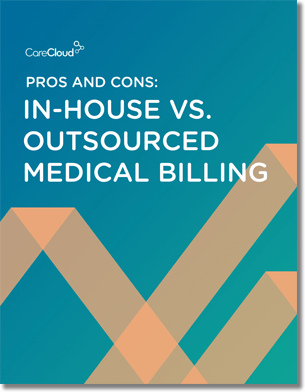Life was more leisurely in the 1980s. Most healthcare providers handled their own billing – physicians set fees for treatment and sent bills to insurance companies, who in turn paid the bill. Paper wasn’t a swear word yet, seeing as little technology was needed.
If you’re reading this, however, you know today’s healthcare world consists of rigid and complicated coding rules, and fees for each procedure endure an oft-heated negotiation process. The administrative burden is overwhelming for physicians, who more than ever are turning to medical billing companies for help.
Advances in health IT and the looming ICD-10 deadline are changing the rules of the medical billing game. Seeing as we’re living in an exciting time for medical billing, what lies on the horizon?
Let’s phrase this as that quintessential job interview question: where does medical billing see itself in the next few years?
Widespread EHR Adoption
We don’t expect it’ll take more than eight or so years for most American physicians to adopt an electronic health record. In 2011, the National Center for Health Statistics found that 55% of physicians had adopted an EHR system, and of course the 2015-16 Meaningful Use deadlines.
The adoption of information technology in healthcare reflects a global, cross-industry upheaval that thinkers like Thomas Friedman have documented extensively (see his bestselling 2005 book The World is Flat). As the world becomes increasingly connected and paperless, the payment cycle should be simplified and sped up for all involved.
As we perfect EHRs, 99% collection rates aren’t out of reach, and coding becomes increasingly easier. See below.
Evolution of Coding
While the change to ICD-10 has spurred conversation about its administrative and cost-related burdens, its extra level of detail will help streamline the claims submittal process.
ICD-9 codes, written in 1977, weren’t developed for reimbursement purposes; those capabilities were adapted much later. On the other hand, ICD-10’s greater specificity will provide payers, policymakers, and providers better information to make refinements to US reimbursement systems.
Furthermore, fewer gray areas in coding will make it easier to compare codes with clinical documentation, check for consistency between diagnosis and procedure codes, and make it more challenging for dishonest providers to hide behind unclear code rules.
However, coding specialists fear coding software integrated into EHRs or practice management systems may replace their jobs within the next ten years. So how does the job outlook fare for medical billing and coding professionals over the next decade?
Will There Be Jobs?
We believe the outlook is bright for billers and coders. ICD-10 means more accurate medical billing and coding, which translates to more jobs with higher salaries as more providers make the inevitable switch.
Information technology will continue advancing healthcare in a positive way, and though many fear it can replace human expertise, there are two things this technology can’t accomplish:
- The change will present new opportunities for coders as problems solvers, i.e., some insurers may not update their systems on time, leading to A/R issues and cash flow problems, and;
- Medical billers and coders need to deal with unexpected challenges and repercussions that IT isn’t equipped to handle.
And the numbers aren’t too shabby, either: the US Bureau of Labor Statistics reflects that employment for medical transcriptionists is expected to increase by 11% in the coming years, and medical records and health information technicians will grow by 20% through 2018.
Overall, medical billers and coders still have a future in continuing to help the US healthcare system save money, improve patient care and lead the world in efficiency.
What do you think lies in store for medical billing?
The material and information contained on this website is for general information purposes only. You should not solely rely upon the material or information on the website as a basis for making any business, legal, medical, or any other decisions. While we endeavor to keep all information up-to-date and correct, all information in this site is provided "as is," and CareCloud Corporation and MTBC Inc. make no representations or warranties of any kind, express or implied, about the completeness, accuracy, reliability, suitability, or availability with respect to the information contained on the website for any purpose. Any reliance you place on such material is therefore strictly at your own risk.



